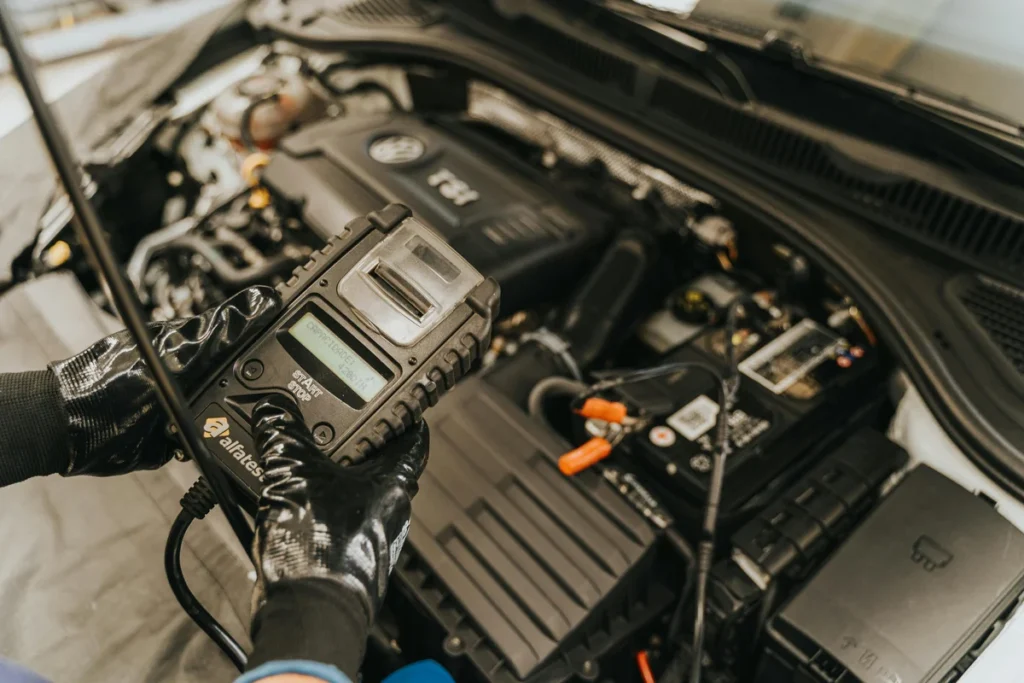What is the Lifespan of an Electric Car Battery?

Electric cars are revolutionizing the automotive industry, and at the heart of this transformation lies the electric car battery. But how long do these batteries last? That’s the question many potential EV owners ask… In this article, we’ll explore the lifespan of an electric car battery, the factors that influence its longevity, and how to extend its life.
Understanding Electric Car Batteries
Types of Electric Car Batteries
Most modern electric vehicles (EVs) use lithium-ion (Li-ion) batteries due to their high energy density and long lifespan. Other types, such as nickel-metal hydride and lead-acid batteries, exist but are less common in today’s EV market.
How They Work
EV batteries store energy and release it to power the electric motor. They go through charging and discharging cycles, and over time, their efficiency gradually declines.
Average Lifespan of an Electric Car Battery
Manufacturer Estimates
Most EV manufacturers provide warranties for 8 to 10 years or around 100,000 to 150,000 miles. However, many EVs continue to function well beyond that range.
Real-World Longevity
Real-world data suggests that many EV batteries last 10-15 years with proper care. Some Tesla batteries, for instance, have been reported to exceed 200,000 miles before significant degradation occurs.
Factors That Affect Battery Lifespan
Charging Habits
Frequent fast charging can degrade battery health faster than slow charging. Keeping the battery charge between 20-80% helps extend its lifespan.
Temperature and Climate Conditions
Extreme heat or cold can negatively impact battery life. EVs in moderate climates tend to have longer battery life.
Driving Style and Usage
Aggressive acceleration, excessive braking, and high-speed driving increase battery stress, reducing its longevity.
Battery Maintenance
Regular software updates, proper storage, and avoiding deep discharges help maintain battery health.
How to Extend the Lifespan of an Electric Car Battery
Proper Charging Practices
- Avoid frequent deep discharges.
- Use Level 2 chargers instead of fast chargers when possible.
Managing Extreme Temperatures
- Park in shaded or temperature-controlled areas.
- Pre-condition the battery before driving in extreme temperatures.
Regular Software Updates
Manufacturers release updates to optimize battery performance and longevity.
Signs of Battery Degradation
Reduced Range
A noticeable drop in the driving range indicates battery wear.
Slower Charging Times
Batteries that take longer to charge may be showing signs of degradation.
Increased Energy Consumption
A less efficient battery will require more energy to cover the same distance.
What Happens When an Electric Car Battery Wears Out?
Battery Recycling
Old EV batteries are recycled to extract valuable materials like lithium and cobalt.
Second-Life Applications
Degraded EV batteries can be repurposed for home energy storage or backup power.
Comparing Electric Car Battery Lifespan to Traditional Car Batteries
Unlike conventional lead-acid batteries that last 3-5 years, EV batteries are designed to last much longer, making them a more sustainable option.
Future of Electric Car Batteries
Advances in Battery Technology
New battery chemistries, like lithium-iron phosphate (LFP), offer longer lifespans and greater durability.
Solid-State Batteries
Solid-state batteries promise even longer lifespans, shorter charging times, and improved safety.
Improvements in Recycling Methods
Recycling innovations aim to make battery production more sustainable and cost-effective.
Conclusion
Electric car batteries have a lifespan of 10-15 years on average, but various factors like charging habits, temperature, and maintenance influence their longevity. By following best practices, EV owners can maximize battery performance and extend its useful life.
FAQs
1. Can an EV battery last 20 years?
Yes, with proper maintenance and moderate climate conditions, some EV batteries may last up to 20 years.
2. How much does it cost to replace an EV battery?
Battery replacement costs vary, but they typically range from $5,000 to $15,000 depending on the vehicle model and battery size.
3. Does frequent fast charging harm an EV battery?
Yes, frequent fast charging can accelerate battery degradation compared to slower charging methods.
4. Can I recycle my old EV battery?
Yes, many manufacturers and recycling centers offer EV battery recycling programs.
5. What is the best way to maintain an EV battery?
Avoid frequent deep discharges, minimize exposure to extreme temperatures, and keep your software updated.
